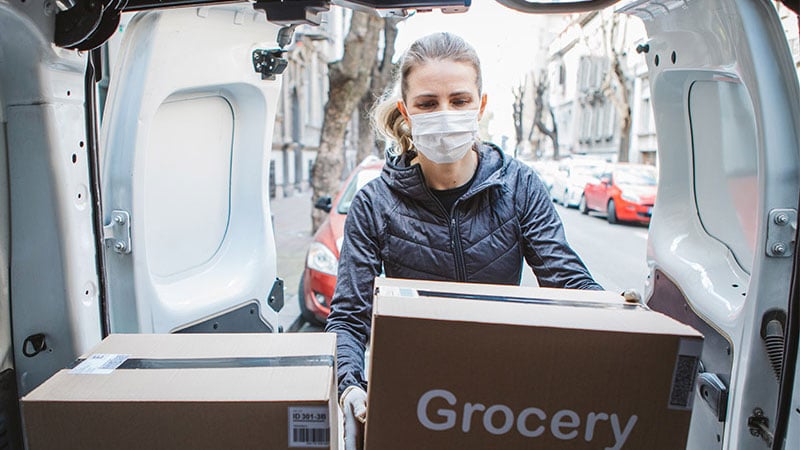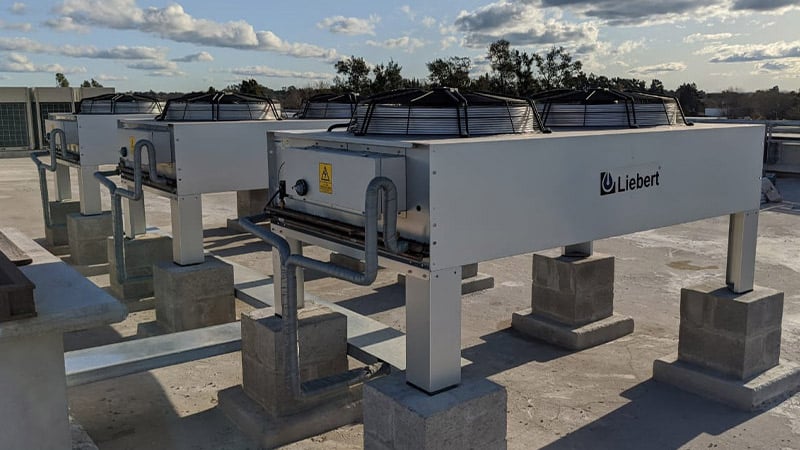2020 was a difficult year for retailers and its effects will likely have a lasting impact in the days ahead. But disruption can be the catalyst for new opportunities and retailers are actively making plans to adapt to the new landscape, including the need for new smart retail technologies to enable transactions, and scale edge infrastructure to address increased data demands.
As a Vertiv channel partner, you are well-positioned to help retailers enhance business continuity and deliver new and exciting customer experiences. Here are some of the challenges retailers face that could trigger the demand for new or updated infrastructure:
- Changes to Checkout: Many retailers who were hit hard by the pandemic may operate stores with fewer staff members, and consumers are open to self-checkout to speed up the checkout process. ResearchandMarkets.com forecasts a 10.2% compound annual growth rate for the self-checkout market between 2020 and 2025.
These systems can drive the need for more in-store IT as they are typically supported by additional security cameras and other systems required to prevent the increased shrinkage that can occur with self-checkout. Retailers putting in new checkout systems may also be planning for additional digitalization initiatives and are good prospects for UPS upgrades. - Reliable Power Back-Up for Networks Are Essential: Outdated UPS systems can put POS and other critical in-store technologies out of commission if they fail during store hours, which are more precious than ever. The biggest culprit is typically UPS batteries. New lithium-ion batteries are available today that offer a much longer life than the UPS batteries used in almost all current retail locations. Through the Vertiv trade-in program, we’ve made it easy and cost-effective for your customers to upgrade to new UPS systems with lithium-ion technology that can have operating lifespans of 10 years.
- Expanded Services: Key retail sectors, such as grocers and drug stores, are aggressively opening in-store clinics that add services such as chronic disease management and diagnostics and testing to their existing pharmacies. These clinics are typically supported by IT systems that are separate from other in-store technology and will require dedicated infrastructure. Vertiv’s experience protecting both healthcare and retail systems makes this an ideal opportunity for Vertiv partners.
- Distributed UPS Systems: Retailers might benefit from distributed UPS systems to protect each checkout system can benefit from centralizing power protection for points like the facility lighting and HVAC systems. Multiple small UPS systems are recommended for individual point-of-sale systems because they are more critical. You wouldn’t want to risk all checkout systems being without power in the case of a centralized UPS failure. For lighting and HAC, managing battery replacements for multiple systems is a challenge and having a centralized system can simplify that. Vertiv offers a full range of line interactive and online double conversion UPS systems with the capacity for distributed and centralized power protection in every size retail store.
- Micro Fulfillment Centers: The pandemic provided a huge boost to e-grocery services such as click-and-pick and home delivery. Grocers are preparing for this shift in consumer behavior to be permanent and many are planning to add automated micro fulfillment centers to some retail locations. These fulfillment centers will embed automated warehouse technology in the store and create new demand for edge computing. LogisticsIQ is projecting an installed base of 2,000 micro fulfillment centers by 2026 if the technology and concept prove effective.
- Smart Retail Technologies: Retailers are also exploring a host of new “smart retail” technologies designed to improve the in-store experience, such as predictive demand forecasting, augmented shopping, data-based personalization and smart shelves. These technologies often require new in-store IT systems and may drive the need for IT infrastructure investments to accommodate.
Smart Retail Updates Made Easy
Infrastructure for in-store IT systems may not be top of mind for every retailer but it plays a vital role in maintaining business continuity and ensuring new technologies can be added with minimal disruption. Intelligent Vertiv infrastructure also simplifies the task of gaining centralized visibility into distributed retail locations for improved management and reliability. Your Vertiv representative is always ready to help you specify and configure the right solution for every retail application.







